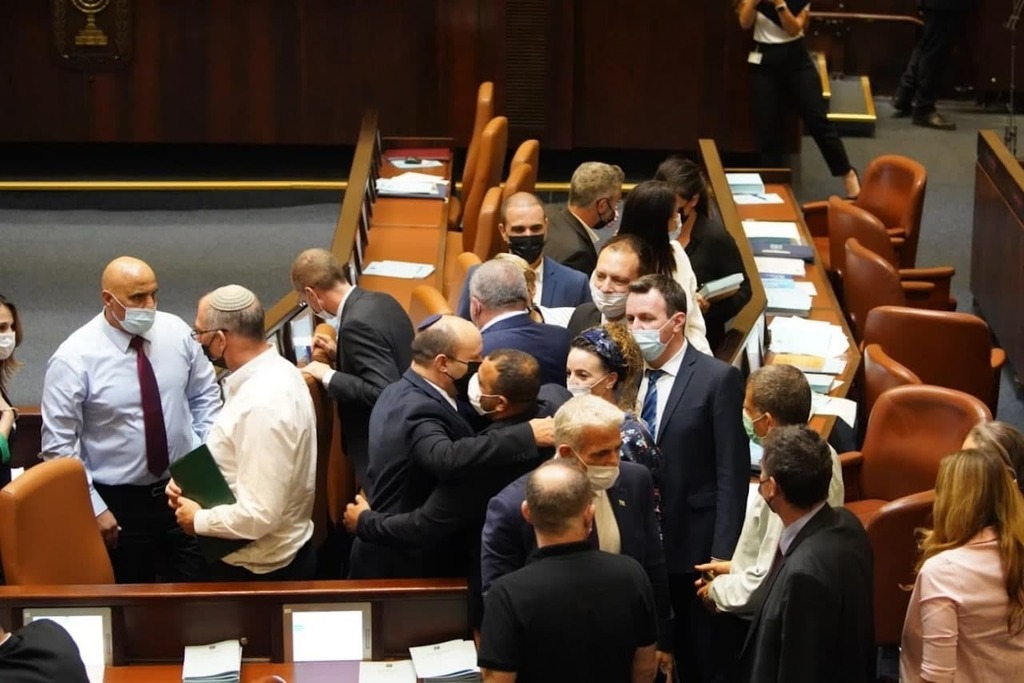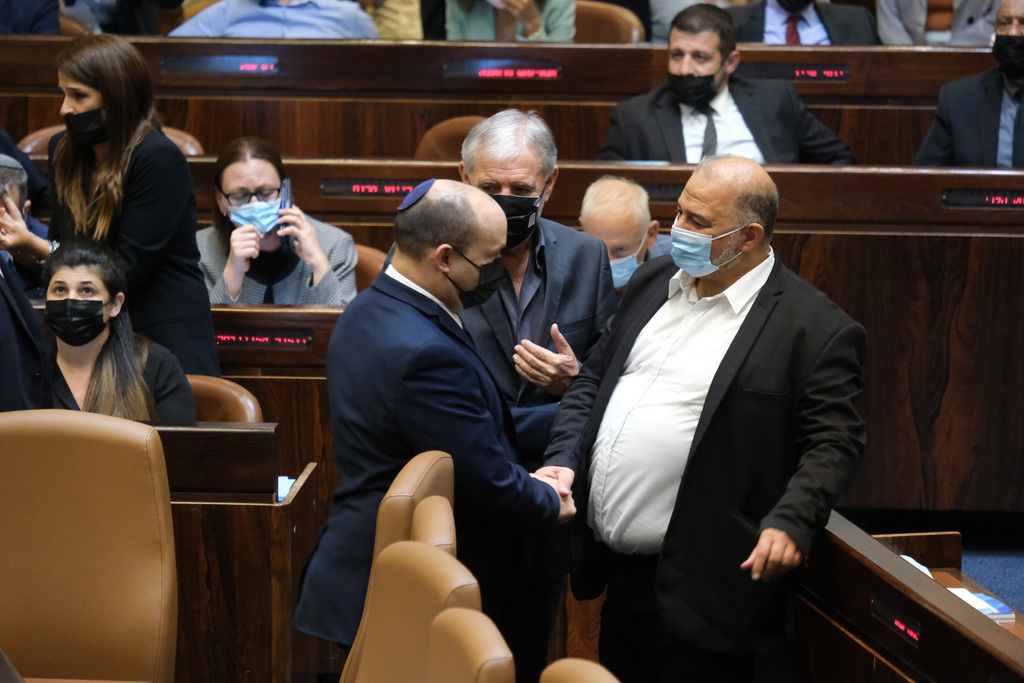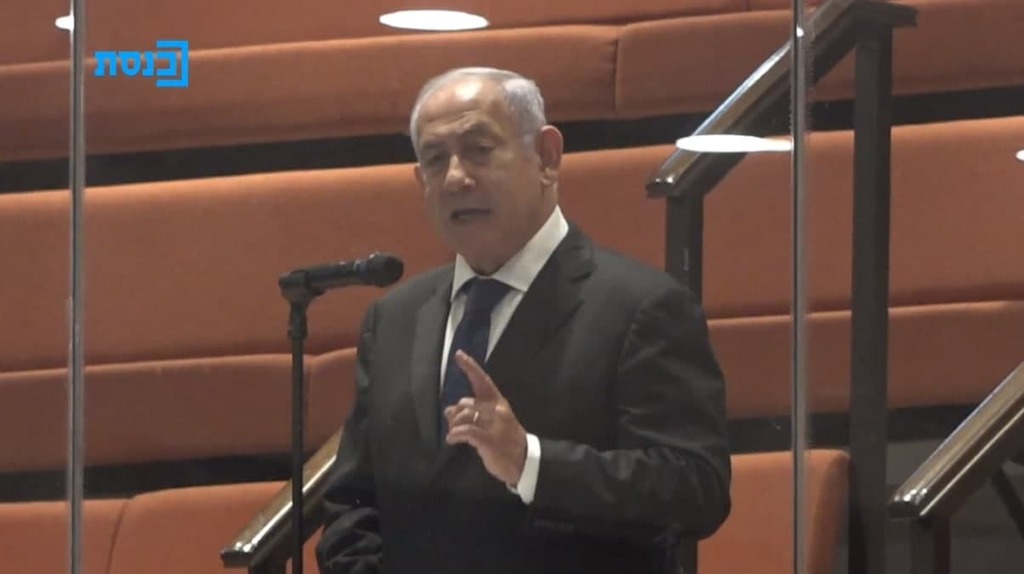Getting your Trinity Audio player ready...
Knesset gave preliminary approval on Thursday to a 2021–2022 state budget, the country's first ratified spending package in more than three years.
Lawmakers passed the 14-month budget bill in first reading, voting 59–54 on the 2021 budget and 59–53 for 2022. Votes for final approval are due in November.
4 View gallery


Members of the coalition celebrate in Knesset the passing of the 2021–2022 state budget in first hearing
(Photo: Knesset)
The Knesset session was a fresh test for the cross-partisan coalition government of Naftali Bennett, who took over in mid-June after unseating veteran Prime Minister Benjamin Netanyahu.
Bennett wields a razor-thin majority in parliament.
The budget earmarked NIS 432.3 billion ($134.85 billion) in 2021 spending and NIS 452.5 billion shekels for 2022 — including funds to fight the coronavirus pandemic.
The budget deficit was projected at 6.8% of gross domestic product in 2021 and 3.9% in 2022, after hitting 11.6% in 2020.
Bennett and Finance Minister Avigdor Liberman had come under pressure from ministers and lawmakers upset at some planned reforms, while others sought higher funding.
Two years of political stalemate and four elections had left Israel still using a pro-rated version of the 2019 state budget passed in March 2018.
A refusal by Netanyahu last year to agree to a two-year budget for 2020 and 2021 helped bring down his coalition.
Earlier Thursday, Knesset voted for the state budget Arrangements Law in its first parliamentary reading, per a Channel 12 report.
4 View gallery


Prime Minister Naftali Bennett and Ra'am chief Mansour Abbas shake hands during a Knesset hearing on the state budget
(Photo: Yoav Dudkevitch)
The Arrangements Law is a government-sponsored bill presented to Knesset each year alongside the State Budget Law. It incorporates government bills and legislative amendments that are needed in order for the government to fulfill its economic policy.
The coalition had to amend the bill to appease the left-wing coalition member Meretz who opposed a regulatory reform proposed by Prime Minister Naftali Bennett’s Yamina party included in the Arrangements Bill for fear it would benefit business and industry at the expense of public health and the environment.
Speaking to the Knesset plenum, Netanyahu rapped the proposed budget outline, which he described as "bad."
"The budget presented today is a bad one. It includes punishments [on the public] and tax hikes in stark contrast to your promises. You are hurting farmers, the weaker populations, the periphery, the middle class,” Netanyahu said, behind a glass-enclosed balcony where he is quarantining after returning from abroad.
The Likud chairman has also hit out at the coalition for billions promised to coalition member Ra'am — an Islamist party which supports Palestinian independence — and a deal recently announced by Defense Minister Benny Gantz to give the Palestinian Authority a NIS 500-million ($155-million) loan in a bid to save its economy as it finds itself in the doldrums.
"You gave a fortune to [Ra'am leader] Mansour Abbas and [Palestinian President] Mahmoud Abbas because you depend on the NIS 53 billion you promised Ra'am."



